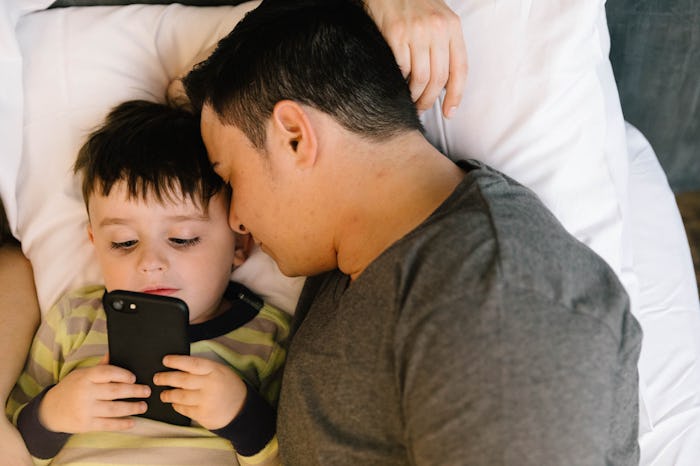Life
Should You Prepare Your Children's Sleep For Daylight Saving Time? An Expert Explains
I never remember daylight saving time because I grew up in Arizona, which doesn't need more daylight, ever. So each year I'm caught by surprise. As an adult, I tend to feel a little jet-lagged, and it only makes sense that your baby might, too. How do you handle the change in their schedule? Understanding that sleep effects every impact of a child's life — from behavior to learning and proper development — what measures should you take to make the transition as smooth as possible? Should you prepare your children's sleep for daylight saving time?
"Sleep is an integral part of a child's physical and mental wellbeing. Attempting to abide by a sleep schedule will give your child, and you, the best chance of having a productive and emotionally stable day," explains Rachel Prete, DO, a pediatrician with Arnold Palmer Hospital for Children in Orlando, Florida. In an email to Romper, she says that daylight saving time can interfere with your child's circadian rhythm. According to an article in Sleep Review Magazine, circadian rhythms follow a 24-hour clock, and impact almost everything: sleep and wakefulness, appetite, body temperature, and hormones. This time of year, a disruption means they're super likely to wake early on their own. So no, you don't have to get them up an hour early or anything. But you should put your child to bed earlier, and let them sleep a little late.
So how should parents manage this change? Prete explains:
"Since daylight saving is about to end, we would recommend attempting to move your child's bedtime up by 10 to 15 minutes over the course of a week and allowing them to rise 10 to 15 minutes later in the morning. You may also want to help yourself and invest in black out shades to keep your child's room darker for longer periods in the morning."
This is good advice, and in my opinion, all parents should be given black-out curtains at the hospital. Darkness is your friend, especially come nap time.
Or course, the ideal is to start helping your child adjust to a new bedtime at least a week in advance, working at gradual intervals — 10 to 15 minutes every few days. Lacking this head start, use the few days you have left, and be prepared for some potential fussiness.
As the world "falls back," and parents and kids suffer some inevitable sleep loss, Prete recommends that you keep in mind that any change in sleep schedule — even missing a midday nap — can create temporary behavior problems, and make your child (and you) feel extra emotional. "Help your child by making this a gradual change and adjusting their bedtime and wake times over the course of a few days," Prete suggests. "The good news is that these problems should be short lived and your child should be adjusted to the new time change within five to seven days. The sooner you start the adjustment, the quicker they will adapt."
Dear world: don't parents have enough problems? I know I look forward to the hour after my daughter falls asleep like she looks forward to those little star-shaped crackers, and the hour before she wakes up is even better. Why mess with the lives of helpless parents not once, but twice a year? Unfortunately, there's nothing I can do to prevent the clock on your smartphone from instantly changing this weekend. With patience and a little extra care, however, you can help your child through this apocalypse: Don't wake your child early if she's sleeping in the coming mornings. She might wake up early on her own, but if she doesn't, let her sleep 10 to 15 minutes later than normal for a few days. Gradually, the whole family will adjust.
Check out Romper's new video series, Romper's Doula Diaries:
Check out the entire Romper's Doula Diaries series and other videos on Facebook and the Bustle app across Apple TV, Roku, and Amazon Fire TV.
